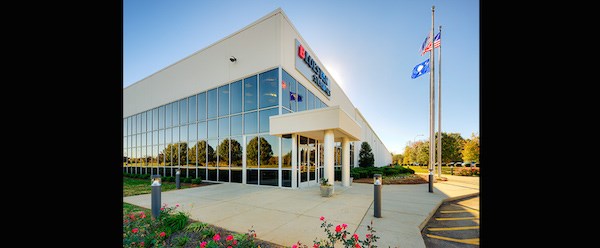LSR Molders Get New Handle on Cure Speeds
LSR molders can now tailor the cure profile for every part with one material system that allows adjustment of inhibitor level.

Under the theme of “speed with control,” Bluestar Silicones, E. Brunswick, N.J., introduced its LSR Select system to the 110 attendees of the Molding 2014 Conference in Newport Beach, Calif., earlier this month. According to the company’s research, what liquid silicone rubber (LSR) molders want most is 30-50% reduction in cure times, but their only way to achieve that currently is by raising mold temperatures or switching to a faster-curing product. With today’s LSRs, the cure kinetics are built into the formulation. But Bluestar’s new LSR Select system changes that.
Unlike typical LSR two-part, A-B systems, LSR Select consists only of one base resin component, which contains crosslinker and a minimal amount of inhibitor. Two additive masterbatches, added similarly to colorants, contain catalyst and additional inhibitor. In this manner, molders can tailor the cure characteristics of one basic resin system for a number of different applications. Little or no additional inhibitor need be added for small parts, and more inhibitor for larger parts. With no added inhibitor, cure speeds are faster than standard grades. Adding inhibitor (up to 3%) slows initial curing but maintains rapid curing afterward. Catalyst addition is not variable.
LSR Select, which is currently in trials, comes in Shore A durometers from 18 to 70. Physical properties of cured parts are said to be very similar to those of Bluestar’s conventional Silbione LSR 43xx grades of equal durometer. At the conference, Bluestar cited molding trials at Kipe Molds Inc., Placentia, Calif., and Roembke Mfg. & Design, Inc., Ossian, Ind., in which cure times were cut by 28% to 50%. The company reports that productivity increases up to 125% have been verified in tests. Besides faster and adjustable cures, the new system offers freedom from A:B ratio variations and simplified materials inventory.
The key to the system is having a metering system capable of precise dispensing of catalyst and inhibitor. Bluestar teamed up with Graco Inc., Minneapolis (which owns metering-system supplier Fluid Automation Inc., N.Canton, Ohio), to design a metering system with one base pump and servo-pumps for catalyst, inhibitor, and colorant if desired. The injectors boast metering accuracy within 10%. The system has a touchscreen controller and USB port for recording shot data.
Incidentally, the Molding 2015 Conference is slated for next June in Rosemont, Ill. That will be the first Molding Conference presented by Gardner Business Media (parent of Plastics Technology magazine) since acquiring the conference from its founder, Amos Golovoy, who will continue to organize it for the next three years.
Related Content
-
Prices for All Volume Resins Head Down at End of 2023
Flat-to-downward trajectory for at least this month.
-
Prices Up for PE, ABS, PC, Nylons 6 and 66; Down for PP, PET and Flat for PS and PVC
Second quarter started with price hikes in PE and the four volume engineering resins, but relatively stable pricing was largely expected by the quarter’s end.
-
Prices for PE, PS, PVC, PET Trending Flat; PP to Drop
Despite price increase nominations going into second quarter, it appeared there was potential for generally flat pricing with the exception of a major downward correction for PP.












